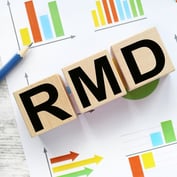What You Need to Know
- Donating appreciated stocks, ETFs, mutual funds and other securities offers a double tax advantage.
- Capital losses in excess of realized capital gains can be used to offset up to $3,000 of other taxable income.
- As always, do what's best for the client's overall financial situation.
With the prospect of higher capital gains taxes under the Biden tax proposal, financial advisors will want to look for ways to help their clients avoid these higher taxes on stocks, inherited property and other assets.
The Biden tax proposal would raise long-term capital gains tax rates to 39.6% for those earning $1 million or more per year. When you add in the Net Investment Income Tax (NIIT) for high-income taxpayers of 3.8%, this raises the top long-term capital gains tax rate from the current 23.8% to 43.4%. In a surprise, he suggested the increases be retroactive to April.
Here are some ways you can help your clients avoid or reduce capital gains taxes.
Donate Appreciated Securities to Charity
This is a tax-smart way for your clients with charitable inclinations to donate money even under the current rates. Donating appreciated stocks, ETFs, mutual funds and other securities offers a double tax advantage, so to speak.
First, the market value of the securities on the date of the donation serves as a charitable tax deduction, provided that your client is eligible to itemize deductions for that tax year. Second, there are no capital gains taxes on the donated assets. Even at current capital gains tax rates, the capital gains taxes on ultra-low basis shares of appreciated stock can be substantial.
In addition to a direct donation to a charitable organization, your clients can consider a donor-advised fund (DAF). Donating appreciated assets to a DAF offers the same tax advantages to clients as a direct charitable donation. With a DAF, the donated assets are professionally managed, and clients can make donations to accredited charitable organizations over time while realizing the tax benefits in the year the money is transferred to the DAF.
While most people think of charitable donations in terms of appreciated stocks, mutual funds, ETFs and other securities, other appreciated assets can be donated directly to organizations or to a DAF. These assets could include art and collectibles, real estate and others.
Use Tax-Loss Harvesting
Be sure to use tax-loss harvesting when appropriate. Tax-loss harvesting involves realizing tax losses on holdings and using these tax losses to offset realized capital gains. This can be done in the course of your regular client portfolio reviews to determine if rebalancing is needed.
Some advisors will look at their client’s taxable accounts to look for tax-loss harvesting in the course of the year and “bank” those losses for use in offsetting future realized capital gains. Capital losses in excess of realized capital gains can be used to offset up to $3,000 of other taxable income. Any remaining unused losses can be carried over to subsequent years.
Be Smart About Asset Location
Asset location is about the types of investments held in various accounts such as taxable accounts and retirement accounts like IRAs and 401(k)s. This has always been something to consider in the course of tax planning for clients. If the proposed higher capital gains tax rates are enacted, this will become a bigger issue for clients who are affected.
Conventional wisdom has been that assets with the potential for large capital gains, such as stocks, be held in taxable accounts and that income-producing assets like bonds and others be held in taxable retirement accounts. With the current long-term capital gains rates at preferential levels, these gains would be taxed at a lower rate than most clients’ regular tax rates.









 May 27, 2021 at 05:35 PM
May 27, 2021 at 05:35 PM











